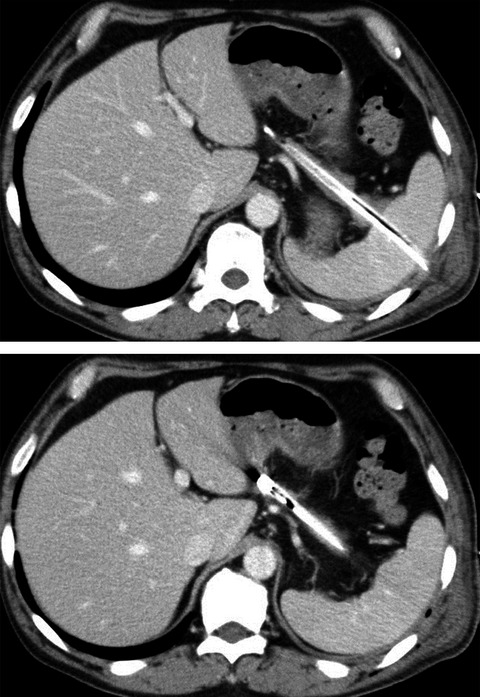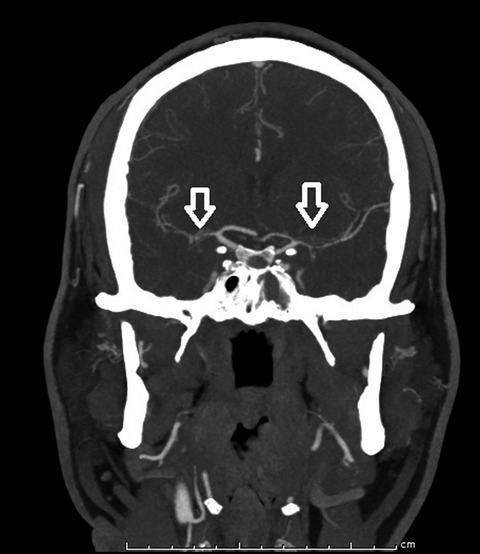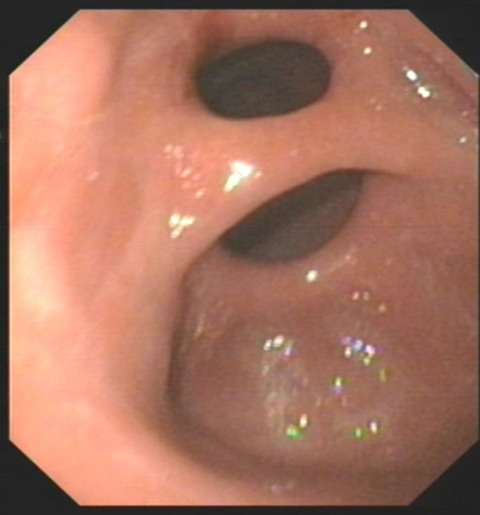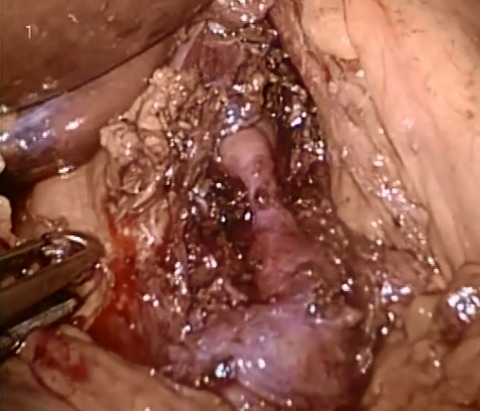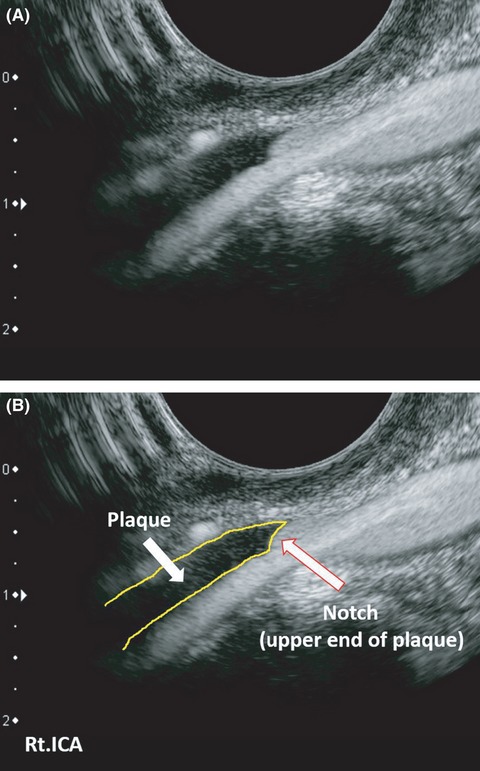Journal list menu
Export Citations
Download PDFs
Issue Information
Case Reports
A case of gingival cancer with pulmonary metastases that developed complete atrioventricular block and ventricular fibrillation as a result of myocardial metastases
- Pages: 1075-1081
- First Published: 10 October 2016
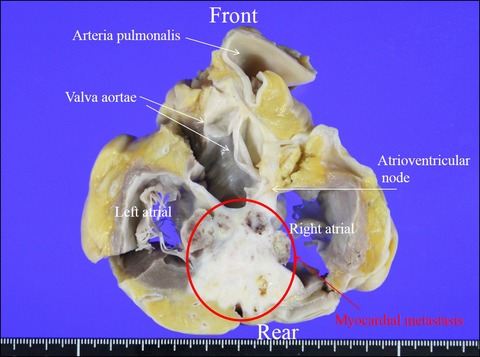
We present a rare case of gingival cancer with pulmonary metastases that developed life-threatening complete atrioventricular block and ventricular fibrillation as a result of myocardial metastases. This case suggests that implantable cardioverter defibrillators significantly improve the quality of life in these patients and maintain their performance status.
Functional salivary reservoir in maxillary complete denture – technique redefined
- Pages: 1082-1087
- First Published: 11 October 2016
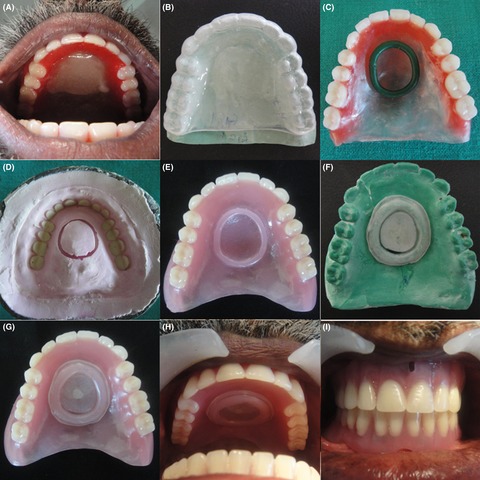
Complete dentures are poorly tolerated in patients with xerostomia. A salivary reservoir can be incorporated into a denture that provides slow, sustained, and continuous release of salivary substitute. This article describes a simple, cost-effective, and innovative technique of fabrication and designing of functional maxillary salivary reservoir complete denture.
Mature CD8+ T-cell clonal expansion in the oral cavity and digestive tract: a severe lymphoid malignancy that mimics Crohn's disease
- Pages: 1088-1090
- First Published: 11 October 2016
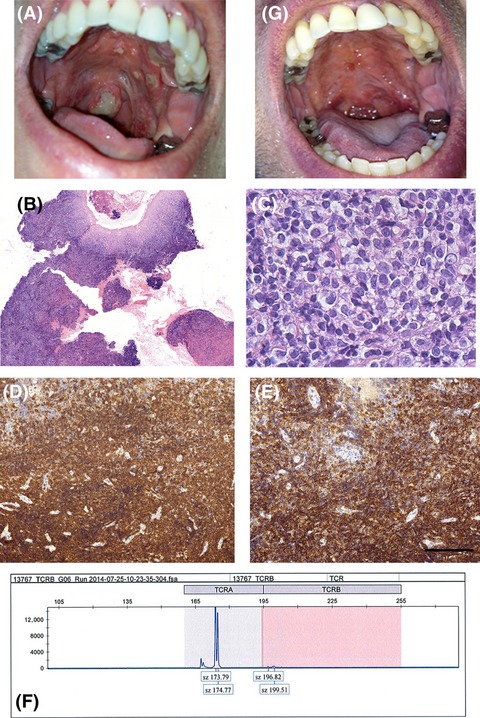
In patients with atypical Crohn's disease features, including severe oral ulcerations and resistance to standard treatment, the possibility of a mature clonal CD8+ T-cell lymphoproliferative disorder should be investigated. Clinicians should be aware of this differential diagnosis because CD8+ T-cell lymphoma prognosis can be remarkably favorable upon oral treatment with cyclophosphamide.
Myopotential oversensing notified by Lead Integrity Alert in a patient with implantable cardioverter defibrillator with a dedicated bipolar epicardial sensing lead
- Pages: 1091-1095
- First Published: 11 October 2016
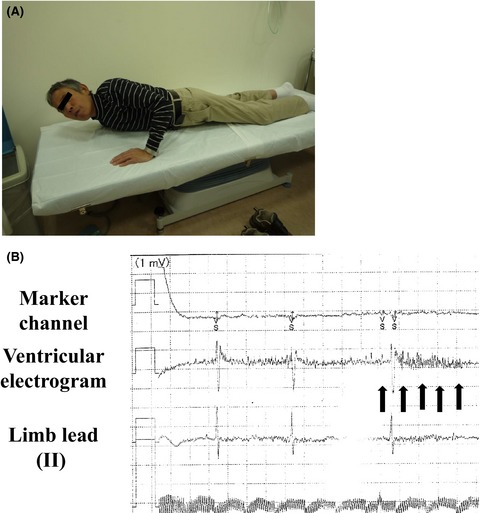
Although myopotential oversensing by a dedicated bipolar lead is rare, an epicardial lead on a dilated ventricle might contribute to its sensitivity. Myopotential oversensing was notified by the Lead Integrity Alert in this case. We should be aware of this possibility for the management of such patients.
Multiple primary cutaneous plasmacytoma a decade after a nasal solitary extramedullary plasmacytoma: a puzzling case
- Pages: 1096-1100
- First Published: 11 October 2016
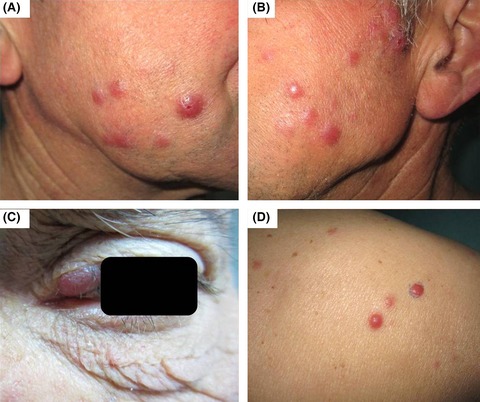
Primary cutaneous plasmacytoma should be in the differential diagnosis in case of solitary or multiple erythematous–violaceous nodules or papules. The diagnosis relies on clinical, histological, and immunochemical findings, without underlying evidence of multiple myeloma. Treatment should be individualized, and agents such as bortezomib or lenalidomide have shown to be effective.
A case of central diabetes insipidus associated with cardiac dysfunction
- Pages: 1101-1106
- First Published: 11 October 2016
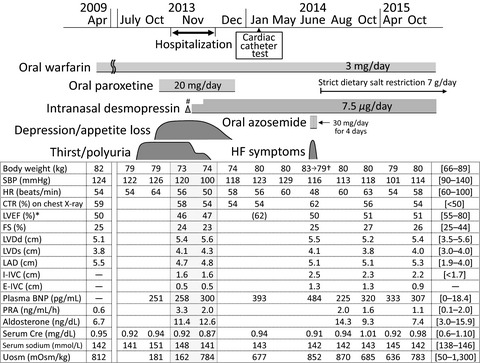
Central diabetes insipidus (CDI) results from a deficiency of arginine vasopressin (AVP) secretion. It is treated by replacement therapy with the synthetic AVP analogue desmopressin. To prevent heart failure in patients with CDI accompanied by cardiac dysfunction, controlling sodium and water intake is essential, using the minimum effective dose of desmopressin.
Live birth in a 46-year-old woman using microdose GnRH agonist flare-up protocol combined with GnRH antagonist: a case report
- Pages: 1107-1111
- First Published: 12 October 2016
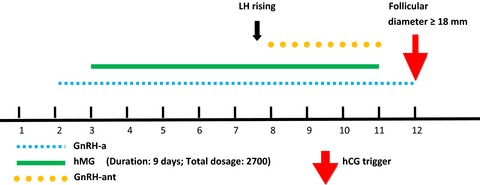
Few successful pregnancies after age 45 years with low ovarian reserve have been reported. We report a 46-year-old woman with basal FSH 20.36 mIU/mL and an antral follicle count of four obtained two embryos and delivered a healthy infant with IVF using a microdose GnRH-a flare-up protocol combined with GnRH-ant.
Incidentally discovered low-grade appendiceal mucinous neoplasm: a precursor to pseudomyxoma peritonei
- Pages: 1112-1116
- First Published: 13 October 2016
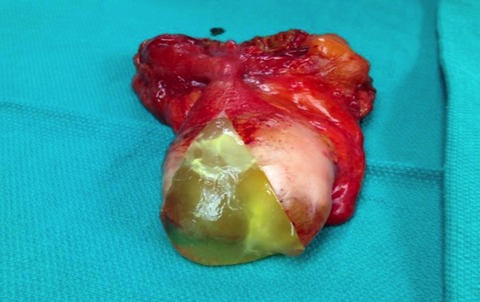
Appendiceal mucoceles (AMs) infrequently arise from an underlying malignancy. Treatment has progressed toward a less aggressive approach over time; they can be managed by appendectomy-only unless pathology reveals malignancy. The ultimate goal of management is to prevent AM rupture, avoiding the syndrome of pseudomyxoma peritonei.
Abdominal epilepsy, an uncommon cause of chronic and recurrent abdominal pain: a case report
- Pages: 1117-1119
- First Published: 13 October 2016
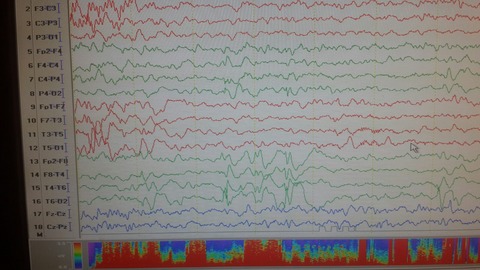
Abdominal epilepsy is an uncommon cause of paroxysmal abdominal pain. It is relatively common in children, but very rare in adults. We report a case of 38-year-old, who reported with recurrent abdominal pain for 2 years. Electroencephalography confirmed the diagnosis; he responded well to carbamazepine and remains symptom-free on follow-up.
A case of new-onset cardiomyopathy and ventricular tachycardia in a patient receiving ibrutinib for relapsed mantle cell lymphoma
- Pages: 1120-1121
- First Published: 17 October 2016
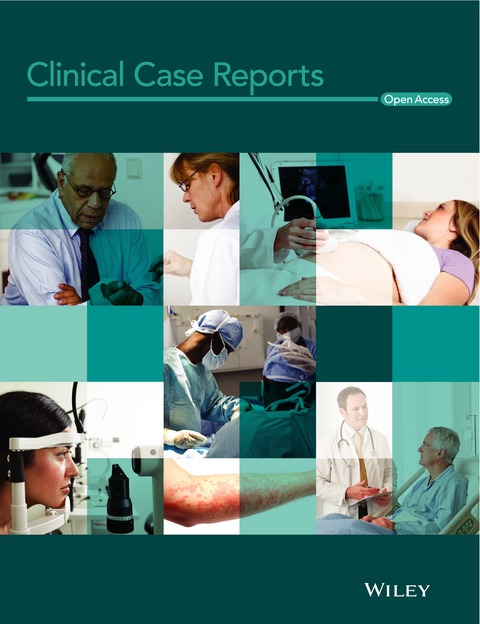
Ibrutinib is a first-in-class inhibitor of Bruton's tyrosine kinase, which is approved for use in chronic lymphocytic leukemia, mantle cell lymphoma, and Waldenstrom's macroglobulinemia. Although ibrutinib has been linked to an increased incidence of atrial fibrillation, this is the first report of an association with nonischemic cardiomyopathy and ventricular arrhythmia.
Inflammatory myofibroblastic pancreas tumor: a case report
- Pages: 1122-1124
- First Published: 20 October 2016
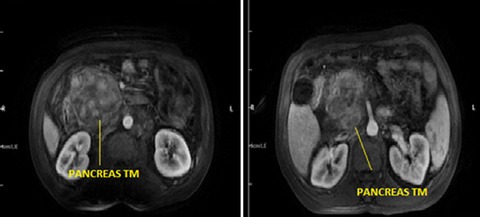
Inflammatory myofibroblastic tumor (IMT) histologically characterized by fibroblastic and myofibroblastic proliferation with inflammatory infiltrate. The therapy adopted was Whipple's pancreaticoduodenectomy with a histological diagnosis of the inflammatory myofibroblastic tumor. The disease that should be considered as the differential diagnosis is pancreatic cancer. The diagnosis and treatment of IMT is surgical resection.
Mosaic partial pericentromeric trisomy 8 and maternal uniparental disomy in a male patient with autism spectrum disorder
- Pages: 1125-1131
- First Published: 21 October 2016
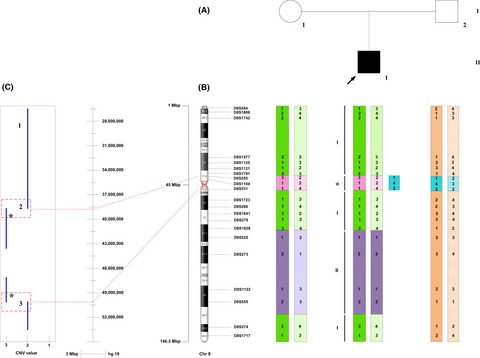
Various chromosomal anomalies including small supernumerary marker chromosome (sSMC) and Uniparental disomy (UPD) have been described in association with intellectual disability and autism spectrum disorder. Based on our reported findings, we recommend that patients with sSMC(8) be evaluated for autism spectrum disorder (ASD) for early institution of therapy. In the presence of an identifiable sSMC, exploration of UPD is also recommended to further investigate the role of chromosome 8 UPD in ASD.
Complication of venovenous extracorporeal membrane oxygenation cannulation – the significance of an inferior vena cava anomaly
- Pages: 1132-1134
- First Published: 24 October 2016
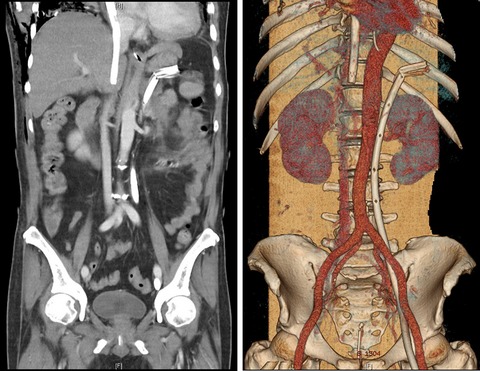
Physicians should be aware of possible anatomical variants during cannulation for extracorporeal membrane oxygenation (ECMO). Particular attention to ensure continual visualization of the guidewire before proceeding to final positioning of the ECMO cannulae should be paid. Alternative imaging modalities should be contemplated when uncertainties arise to minimize the risk of inadvertent vascular injuries.
Glucose-6-phosphate dehydrogenase deficiency: not exclusively in males
- Pages: 1135-1137
- First Published: 24 October 2016
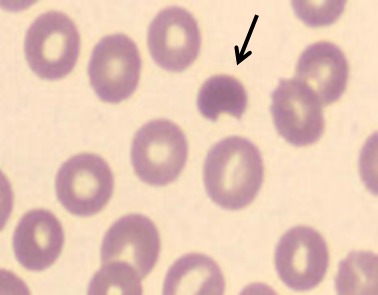
Glucose-6-phosphate (G6PD) deficiency is the most common human enzyme defect, often presenting with neonatal jaundice and/or acute hemolytic anemia, triggered by oxidizing agents. G6PD deficiency is an X-linked, hereditary disease, mainly affecting men, but should also be considered in females with an oxidative hemolysis.
All-trans retinoic acid (ATRA) in non-promyelocytic acute myeloid leukemia (AML): results of combination of ATRA with low-dose Ara-C in three elderly patients with NPM1-mutated AML unfit for intensive chemotherapy and review of the literature
- Pages: 1138-1146
- First Published: 24 October 2016
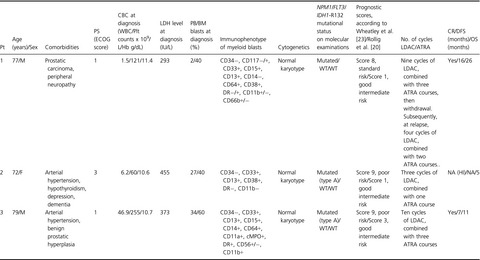
Based upon the clinical behavior of three patients, we suggest that the combination of low-dose Ara-C and all-trans retinoic acid may potentially be effective in some elderly patients, unfit for intensive chemotherapy, affected with NPM1-mutated acute myeloid leukemia without FLT3 mutations, warranting perspective clinical studies in these selected patients.
A case of veno-venous extracorporeal membrane oxygenation for severe respiratory failure in a superobese patient
- Pages: 1147-1150
- First Published: 24 October 2016
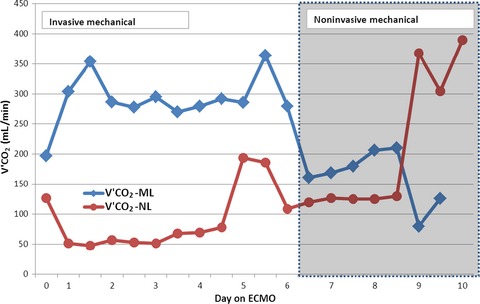
After risk assessment, veno-venous extracorporeal membrane oxygenation (ECMO) has been achieved in a superobese adult patient as a bridge to recovery of respiratory failure, despite the weight-related difficulties. Early v-v ECMO implantation could be considered to support and to conduct weaning both from sedation and from invasive mechanical ventilation, with the goal to perform physiokinesitherapy during awake ECMO.
Novel compound heterozygous mutation in SACS gene leads to a milder autosomal recessive spastic ataxia of Charlevoix-Saguenay, ARSACS, in a Finnish family
- Pages: 1151-1156
- First Published: 26 October 2016
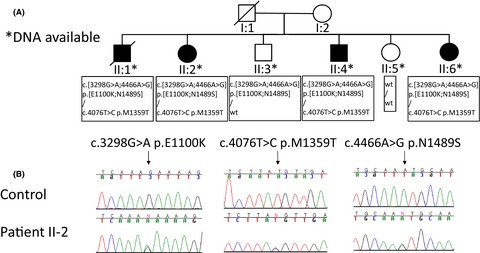
Autosomal recessive spastic ataxia of Charlevoix-Saguenay is a rare disorder outside Quebec causing childhood-onset cerebellar ataxia, peripheral neuropathy, and pyramidal tract signs. A Finnish family with milder form of ARSACS was found to harbor three mutations, p.E1100K, p.N1489S, and p.M1359T, in SACS gene. The mutations segregated with the disease.
Noninvasive management for iatrogenic splenic injury caused by chest tube insertion: a case report
- Pages: 1157-1160
- First Published: 28 October 2016
A case of basal cell carcinoma of the nictitating membrane in a dog
- Pages: 1161-1167
- First Published: 28 October 2016
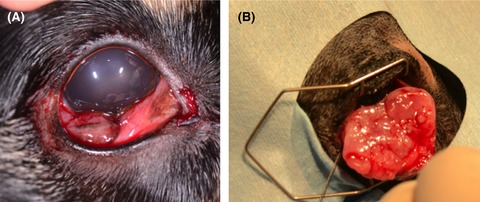
A case of a basal cell carcinoma (BCC) of the nictitating membrane (NM) in a 9-year-old female spayed dachshund is reported. Computed tomography and resection of the NM followed by cryosurgery was performed. Although uncommon, BCC should be considered as a differential diagnosis for tumors of the NM.
Unusual association of brain hemorrhage and digestive tract occlusion: about two prenatal cases
- Pages: 1168-1171
- First Published: 28 October 2016
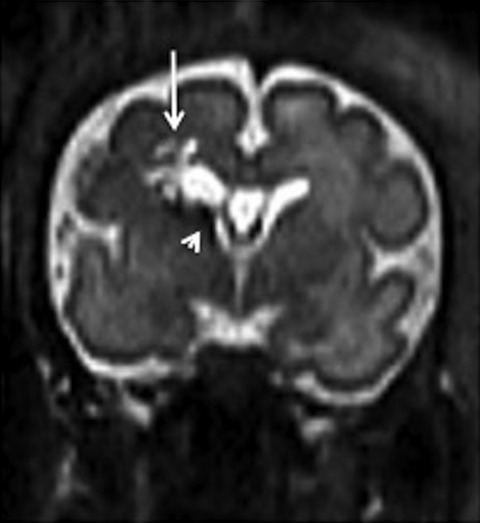
We report two prenatal cases of an exceptional association of digestive tract atresia or perforation with brain hemorrhage. This combination worsens the prognosis leading to termination of pregnancy in one case. We outline the importance of a careful fetal brain examination on imaging in cases of prenatal “acute” abdominal insults.
Diagnostic and response assessment FDG PET-CT in neurolymphomatosis
- Pages: 1172-1174
- First Published: 28 October 2016
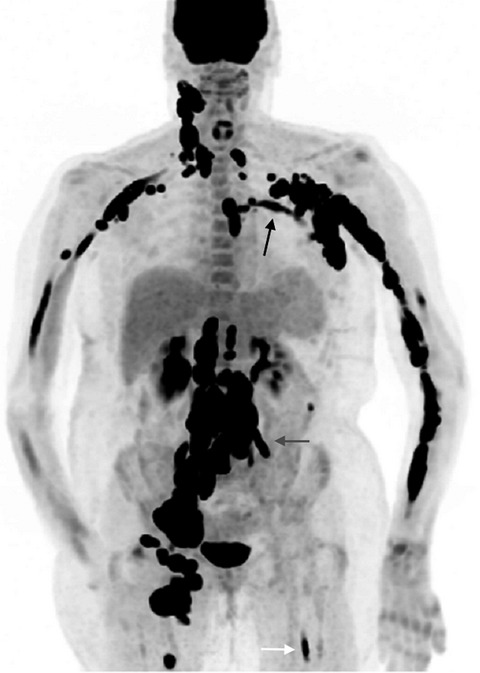
FDG PET-CT is a useful imaging tool in the diagnosis and response assessment of neurolymphomatosis, especially in cases of otherwise unexplained neuropathy following conventional diagnostic work-up including lumbar puncture, CT, and MRI. The use of a novel PET reconstruction algorithm improves image quality and lesion detection through increased signal-to-noise ratio.
Aneurysmal bone cyst of the mandible affecting the articular condyle: a case report
- Pages: 1175-1180
- First Published: 28 October 2016
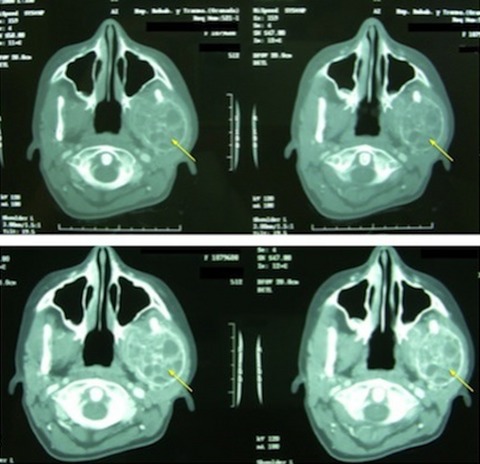
Aneurysmal bone cyst (ABC) is a benign osteolytic lesion that is fast-growing, expansile, and locally destructive. The present case is of a young girl with facial asymmetry, which had become accentuated during the previous months. A conservative treatment was performed to reduce morbidity and affectation of the lower dental nerve.
Diagnosis of Cushing's disease in a patient with consistently normal urinary free cortisol levels: a case report
- Pages: 1181-1183
- First Published: 09 November 2016
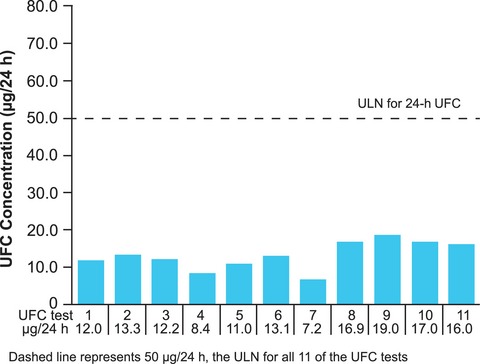
The urinary free cortisol (UFC) test is widely used for the screening of Cushing's syndrome. This case study illustrates the potential failure of the UFC test to correctly diagnose Cushing's disease (CD), indicating that the use of other complementary tests may be necessary to diagnose this disease in some cases.
Extensive intracranial arterial stenoses in conjunction with the use of tyrosine kinase inhibitor Nilotinib
- Pages: 1184-1186
- First Published: 09 November 2016
Double trouble: fetal diagnosis of a pulmonary artery sling and vascular ring
- Pages: 1187-1190
- First Published: 11 November 2016
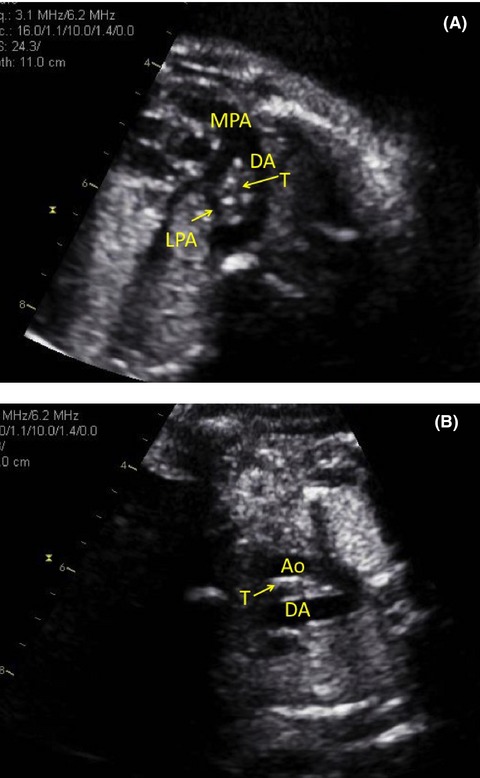
Left pulmonary artery slings and vascular rings are rare congenital anomalies definable by fetal echocardiography. Left pulmonary artery slings are associated with high respiratory morbidity and mortality. Prenatal diagnosis of a left pulmonary artery sling should prompt delivery planning for postnatal management at a pediatric tertiary care center.
Examination of Huntington's disease with atypical clinical features in a Bangladeshi family tree
- Pages: 1191-1194
- First Published: 11 November 2016
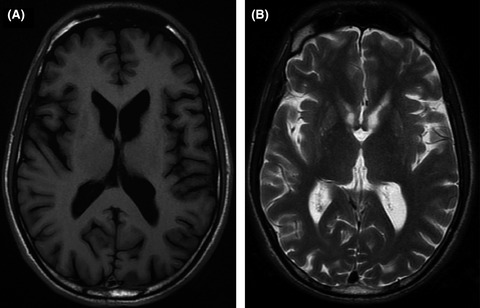
Atypical manifestation of Huntington's disease (HD) could inform ongoing research into HD genetic modifiers not present in the primarily European populations studied to date. This work demonstrates that expanding HD genetic testing into under-resourced healthcare settings can benefit both local communities and ongoing research into HD etiology and new therapies.
Catheter ablation of ventricular ectopy with para-hisian origin: importance of mapping both sides of the interventricular septum and understanding when to stop ablating
- Pages: 1195-1200
- First Published: 13 November 2016
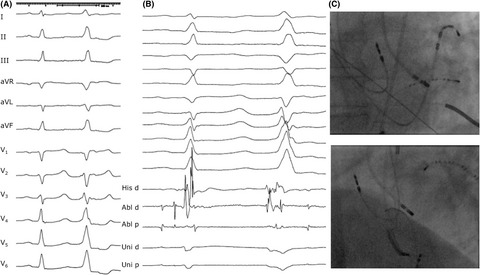
Catheter ablation of para-Hisian premature ventricular contractions (PVCs) still represents a challenge and is a compromise between success and inadvertent AV block. We describe a possible strategy to address PVCs from this location with high-amplitude His-bundle potentials at the site of earliest activation.
Clinical Images
Operating the blues
- Pages: 1201-1202
- First Published: 05 October 2016
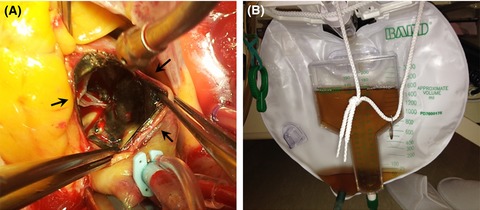
A 63-year-old man bearing most signs and symptoms (facial pigmentation, degenerative arthritis, and dark urine) pertinent to his known history of alkaptonuria underwent aortic valve replacement for critical aortic stenosis. Although rare, aortic stenosis is the most common cardiac manifestation of alkaptonuric ochronosis.
Palmar rash in a teenager: more than meets the eye
- Pages: 1203-1204
- First Published: 13 October 2016
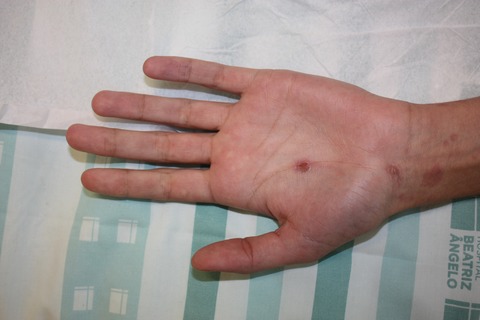
Despite being an uncommon disease in pediatrics, the incidence of syphilis has increased in the last years both in Europe and in the United States. Upon a suggestive clinical presentation, especially if including genital lesions and palmar rash, secondary syphilis must be included in the differential diagnosis.
Computed tomography anomalies associated with isolated hypoparathyroidism
- Pages: 1205-1206
- First Published: 15 October 2016

Hypocalcemia due to chronic hypoparathyroidism presents with nonspecific symptoms. However, if untreated, hypocalcemia may affect neurological, cognitive, muscular, and cardiac function. Computed tomography (CT) findings may confirm a diagnosis of chronic hypoparathyroidism. Although autoimmune acquired hypoparathyroidism is a rare disease, early diagnosis and treatment are critical for avoiding severe complications.
Unwitnessed head trauma: the bamboo did it
- Pages: 1207-1208
- First Published: 24 October 2016
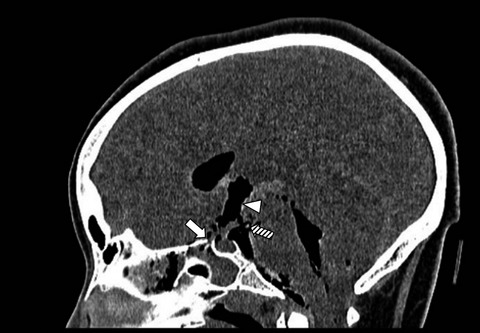
Unwitnessed penetrating head injuries (PHIs) are often challenging. The inability to locate a foreign body should not exclude this diagnosis nor should it delay treatment. Attempts must be made to clarify the mechanism of injury, as this may allow for a better understanding of the patient's condition.
Hemoglobin SC smear recorded with a smartphone
- Pages: 1209-1210
- First Published: 24 October 2016
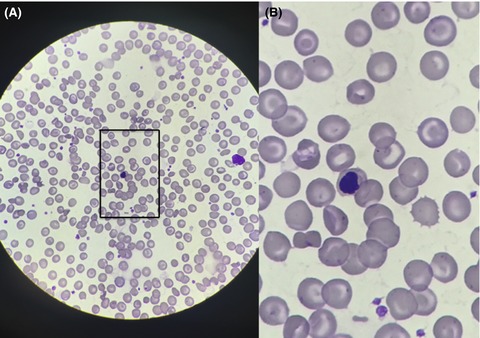
Taking photographs of microscope slides generally requires expensive equipment and a lot of effort. We demonstrate a technique to take clear, focused pictures of microscope slides with a smartphone. This could facilitate exchange of information between providers, allow for quick second opinions, and improve patient care.
Double pylorus: two sides to one story
- Pages: 1211-1212
- First Published: 07 November 2016
Clinical Videos
Median arcuate ligament syndrome: case presentation and video-illustrated laparoscopic management
- Pages: 1213-1214
- First Published: 11 November 2016
Contrast-enhanced transoral carotid ultrasonography for the evaluation of a long stenotic lesion in the internal carotid artery
- Pages: 1215-1216
- First Published: 11 November 2016





